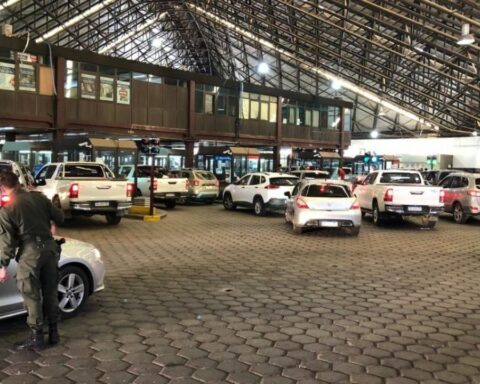This Wednesday, January 11, the Chamber of Deputies and Deputies approved and dispatched the constitutional reform project that enables a new constituent process. The initiative, which emerges from the “Agreement for Chile”, was put to a general vote, where it obtained 109 votes in favor, 37 against and two abstentions, and to a particular vote with its six indications. In this way, the project – which was ready to be promulgated by President Gabriel Boric – ensures the creation of a Constitutional Council, an Expert Commission and a Technical Admissibility Committee, with the purpose of drafting a new proposal for a Constitutional Charter, which would be submitted to citizen scrutiny through elections with compulsory voting.
In this context, and after the Electoral Service (Servel) strongly criticized having been excluded from said political agreement, showing “concern” due to omission regarding constitutional autonomy, adding pessimistic voices in the face of a new attempt to approve a new Fundamental Charter, one of its promoters, the former president of the Chamber of Deputies and Deputies, Raúl Soto (PPD), showed his confidence and assured that “if good decisions are made, the process will legitimize itself.” In this regard, the parliamentarian expressed his intention that this new process be as far as possible from political contingency, and always linked to the citizenry.
But in addition, the deputy for the O’Higgins Region referred to the questions and criticisms that the Government of President Boric has received in recent weeks, and supported the idea that official representatives have suggested to carry out a change of ministerial cabinet. In this regard, Soto considers that “portfolio by portfolio” should be evaluated, to recognize where the weaknesses are and from there to correct them, understanding that in his opinion, the Executive requires a change of direction, to reconnect with the citizenry. However, the former president of the Lower House recognizes the difficulty of channeling this process, by a discredited political class, with a huge crisis of confidence. The challenge, warns Soto, is to “generate a new harmony with the common sense of the majority, and not only in harmony with the ideological sense of a minority.”
-What is, in your opinion, the current state of internal coexistence in the ruling party? How true is the eventual empowerment of Democratic Socialism? Could this imply a “change of course” in the way of governing by President Gabriel Boric?
-First, I must point out that I believe it is not good to enter into a dispute for hegemony within the Government between the two coalitions: I Approve Dignity and Democratic Socialism. Here is a unitary work, based on two coalitions that are essentially different, that have different identities and political domiciles, different histories, and those differences and nuances obviously have to be expressed as well, it is healthy that they are, but at the same time they have , a coordination based on common objectives, which is to carry out the transformation program of President Gabriel Boric. It is not, therefore, an internal power dispute, it is not even a quantitative issue, from the point of view that the coalition has more or less presence within the Government. It is about understanding that there have indeed been errors, in different episodes that during 2022 have occurred in the administration of the Government, and that it is necessary to correct it as soon as possible, and from there, amend the course to be much more effective and much more efficient, focused on social emergencies, security issues and economic issues, and from there generate a new harmony with the common sense of the vast majority of our country, and not only in harmony with the ideological sense of a minority.
– Why do you think it is necessary to change the course of the Government and its relationship with the other powers of the State? What are the guarantees that Democratic Socialism could provide “fresh air” to the Executive?
-I think that the most important thing today is to generate a change of direction that effectively allows the political and ideological matrix of the decision-making process within the Government to effectively change. And in this way, we believe that in the political guidelines and in the ways of facing problems, due to his experience in government management, Democratic Socialism evidently becomes more relevant.
And evidently, if the Government’s management is improved – based on a much clearer work, with a north and an objective, both in the short, medium and long term -, by the way, coordination and communications should be improved to the within the political forces that are part of the ruling party, but also in the relationship with the other powers of the State. I believe that it is necessary today to generate a climate of understanding, dialogue and the search for agreements, which also allows us to resume that dialogue and that much-needed conversation these days with the opposition, which was blown up regarding the decision of the pardons and the fall of the table of agreement in terms of security.
-What are the main challenges that the political class will have to face in this year that has just begun? Why do you consider that a change of direction of the Government is urgent and necessary?
-2023 is going to be a very complex year, with an ongoing constituent process, which must be resolved and executed successfully; with an economic recession during the first semester, with inflation and high cost of living causing negative effects on the pockets of Chilean families; with a climate of polarization, where the political extremes seem to be more empowered than ever. Faced with this, it is necessary to promote institutional stability during this year, and from there generate the conditions, on the one hand, citizen support, so that the reforms are viable and have the political and social force that is required, but at the same time , generate the conditions for political dialogue that also allow for viability, from the point of view of the legislative support that will be required. If we are not capable of building that, we are at risk of a political paralysis during this year 2023, which would be very harmful for the Government, and obviously, very harmful for the country. Therefore, I believe that this government today has the responsibility to float its program, to float its political project, and to float the country. I believe that this is the path to be sought, and if that implies reviewing portfolio by portfolio, where are the problems, where there is bad management, where things could be done better- not only in relation to names or people-, but also Regarding the approaches of public policies and how they are being communicated, by the way, it has to be done.
-How do you, as parliamentarians, face this crisis of trust with the institutions, and how, in the midst of this scenario, can progress be made in the constituent process?
-One of the factors that makes the future of the Government complex, and the future of the constituent process, and therefore it is necessary to see how to address it promptly, is related precisely to the divorce between citizens and the political world. Probably, the mistrust and discredit of the political institutions of our democracy is a global problem, where the crisis of liberal democracies is something that is affecting many countries, and Chile is not exempt from that. We are in a climate with greater polarization, the extremes are stronger, the center left and the center right are a bit pulled in this scenario. But I believe that the “Agreement for Chile” and the robust result we had in the approval of the constitutional reform show that in the political world there is a wide spectrum, on the center left and on the center right, of people who have awareness of the historical responsibility that we have to live today, and that from there we have to act seriously and responsibly, to generate conditions of certainty, not only in the emergencies that we have to face together today, but also in those issues that ensure that in the medium and long term Chile will not walk the path that Peru and Brazil have been walking, for example, with conditions of political instability that are brutal and that have been dragging on for many years.
– What is the degree of responsibility that political parties have from now on with the constituent process? Is there a latent risk of making the same mistakes as in the previous process?
-Many of the parties were not totally satisfied, and that is evident in any agreement. The agreements deal, precisely, with all the parties giving in and finding a meeting point and balance (…) I believe that, to a large extent, the success and legitimacy of this constituent process does not depend on the agreement nor in the design of the process itself, but rather in the decisions that must be taken now regarding the execution of this constitutional project. If the parties make good decisions, choose the right people to be experts, and choose good candidates to be constitutional counselors, without a doubt, this will give us certainty that a process is starting on the right path, and which can eventually be translated into a constitutional text that will be serious and minimalist. In other words, it will not be a government program or a project of a certain political sector, but rather a framework of constitutional action on which all political projects can be developed in a democratic context, whatever the color that this one has








